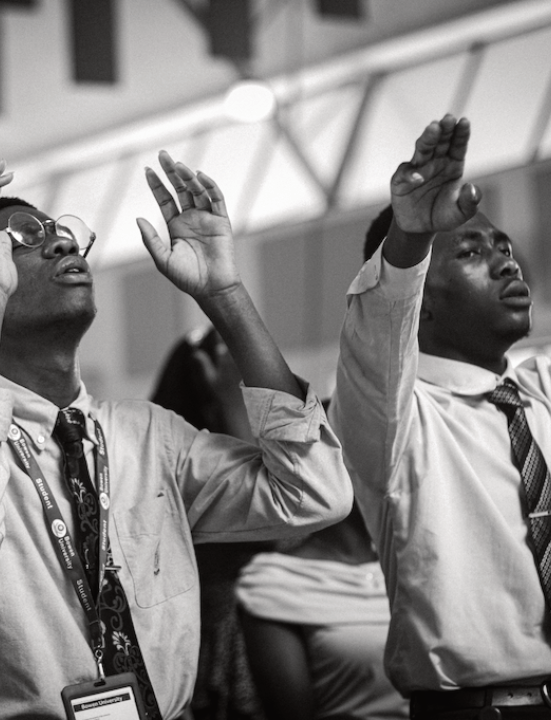Faith Integration Program
Our students have opportunities to learn and think critically from a Christian point of view, explore ideas from the vantage point of Christian tradition, and challenge, deepen, and affirm cultural, professional, or disciplinary perspectives related to the content of their courses.
As colleges experience an increase in students who have little or no familiarity with Christian principles, it is important that whatever faith-integration approaches are developed on-campus work both for students who are well-versed in scriptural principles and for those with no faith background.
An important first step is making sure a classroom is a place free from peer or professorial hostility — the adage “no bad questions” comes to mind. It might also be helpful to require students to read and respond to scripture texts as part of a discussion to make sure everyone has, indeed, read and considered a Bible passage.



The goal of faith integration is to create an environment where students and staff members are encouraged to explore and express their faith perspectives in dialogue with academic subjects. It seeks to foster an inclusive and respectful space that values Christian belief and promotes critical thinking and reflection.
- Interdisciplinary dialogue: Encouraging conversations and collaboration across disciplines to explore the intersections of faith and various academic fields. This involves organizing seminars, conferences, or interdisciplinary courses that explore topics from multiple perspectives.
- Ethical considerations: Examining ethical issues and dilemmas through the lens of religious values and principles. This involves discussions and debates on topics such as social justice, environmental stewardship, or the ethical implications of scientific advancements.
- Engaging religious texts and traditions: Studying religious texts, theological teachings, or philosophical traditions and exploring how they intersect with academic subjects. This involves analyzing religious texts in literature courses, discussing the philosophical implications of faith in philosophy classes, or exploring religious history in history courses.
- Service-learning and community engagement: Connecting faith values with practical experiences through service-learning projects that address social issues and promote compassion and justice.
- Reflection and spiritual formation: Providing opportunities for students and programmes to reflect on their faith, engage in Christian practices, and develop a deeper understanding of their Christian belief and how they relate to their academic pursuits.
Student, Parent, and Alumni Perspectives
Discover the experiences and insights of our students, parents, and alumni. Learn how Bowen University’s academic excellence has shaped their journeys and prepared them for success.
“Bowen University has set a high standard for academic excellence. The lecturers are knowledgeable and supportive, ensuring we grasp every concept thoroughly. The well-equipped facilities and structured curriculum make learning seamless and enjoyable.”

Daniel O.
Software Engineering Student“Bowen University’s commitment to academic excellence is unmatched. My child has grown academically and intellectually, thanks to the university’s rigorous programs and dedicated faculty. I am confident in the quality of education Bowen provides.”

Mrs. Grace I.
Parent of a 300-level Student“Bowen University’s academic standards equipped me with the skills for my career. The curriculum and supportive faculty taught me critical thinking and problem-solving. I’m proud to be an alumnus and grateful for the solid foundation Bowen provided, which continues to guide me.”

